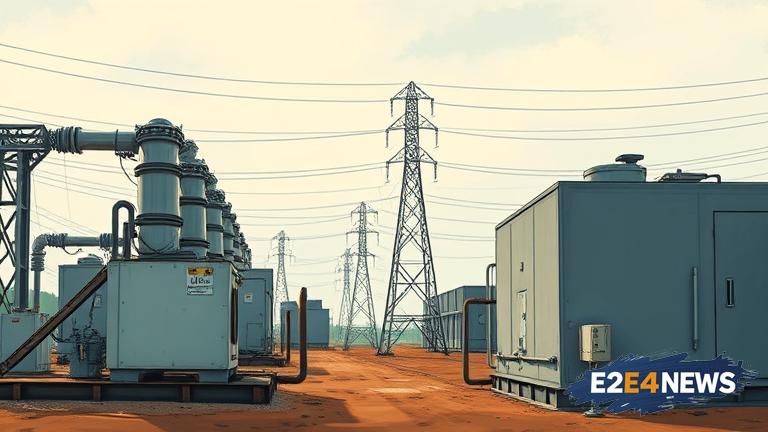The Generation Companies (GenCos) in Nigeria have rejected a proposal to reduce the Band A tariff in Enugu, a move that has sparked controversy in the country’s power sector. The proposal, which was put forward by the Nigerian Electricity Regulatory Commission (NERC), aimed to reduce the tariff for Band A customers, who are typically high-end consumers. However, the GenCos have argued that the reduction would lead to a significant decline in their revenue, making it difficult for them to sustain their operations. The GenCos have also pointed out that the reduction would not be fair, as they have already made significant investments in the power sector. The Nigerian power sector has been plagued by challenges, including inadequate funding, poor infrastructure, and inefficient distribution networks. The sector has also been affected by the COVID-19 pandemic, which has led to a decline in demand for electricity. Despite these challenges, the GenCos have continued to generate power, albeit at a reduced capacity. The rejection of the tariff reduction proposal has been seen as a setback for the Nigerian government, which has been trying to reform the power sector. The government has introduced several initiatives, including the introduction of a new tariff structure, to improve the efficiency and sustainability of the sector. However, the GenCos have argued that the initiatives have not gone far enough, and that more needs to be done to address the challenges facing the sector. The Nigerian power sector is dominated by private players, who have invested heavily in the generation, transmission, and distribution of electricity. The sector is also heavily reliant on gas, which is used to fuel most of the country’s power plants. The GenCos have argued that the reduction in tariff would make it difficult for them to maintain their plants, which would lead to a decline in power generation. The Nigerian government has been trying to diversify the country’s energy mix, by promoting the use of renewable energy sources, such as solar and wind power. However, the GenCos have argued that the transition to renewable energy would take time, and that the country needs to continue to invest in traditional energy sources, such as gas and coal. The rejection of the tariff reduction proposal has sparked a debate about the future of the Nigerian power sector, with some arguing that the sector needs to be reformed, while others argue that the government needs to provide more support to the GenCos. The Nigerian government has been trying to attract more investment into the power sector, by offering incentives, such as tax breaks and subsidies. However, the GenCos have argued that the incentives are not enough, and that the government needs to do more to address the challenges facing the sector. The Nigerian power sector is a critical component of the country’s economy, and the rejection of the tariff reduction proposal has significant implications for the country’s economic growth and development.
